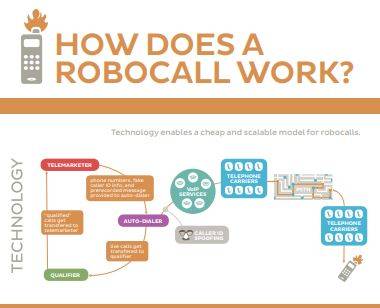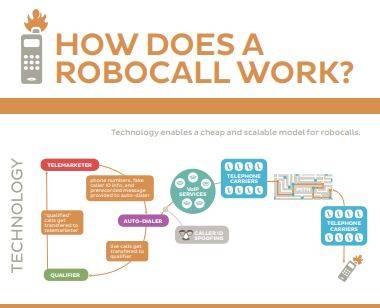

A senior citizen who said she is closing her bank account this week is warning others about a “nightmare” phone scam that she said is targeting seniors in the community.
Two senior citizens in Washington Court House contacted the Record-Herald Tuesday to share their experiences; one woman said she was scammed Monday and a second individual said she was scammed in October but still receives spam phone calls to her phone.
Ann, who declined to use her last name due to her recent security concerns, said she was scammed Monday by a person alleging to be with the Microsoft Corporation.
“Microsoft calls me and he starts out saying that I had paid too much to Microsoft for my computer. And I thought, what? And he said, ‘I have some money I want to put in your checking account’ and I thought, whoa. He said he had $450 that he would put into my checking account. I thought, wow. I thought he would send it to me in the mail. Then he told me to go to these certain places on my computer,” said Ann, 79.
Ann said the man asked her if she was at her computer.
“I said no. He said, ‘You need to go to your computer,’ so I said, oh, okay. I went to my computer, he had me open the web and put in certain letters and numbers. And then he said, push a number seven and hold it down, so I did that. Then this picture comes up and all this stuff started coming up on my computer,” said Ann.
Ann said the man directed her through several screen prompts and then asked for her information about her checking account.
“It’s amazing what all he knew about me already, and he said, go to your checking account, and so stupid me, I go, because I pay online. I thought, well, Microsoft, it’s a reliable company, right? So stupid me, I go to my checking account, then he says, type in your password. So stupid me did that, because he said he was going to send that $450 and put it in my checking account. So I said, oh, well instead of sending it to me in the mail, he would put it in my checking account. Stupid me, I gave him my checking account,” said Ann.
Ann said the caller knew some of her information already, so it sounded like a credible transaction.
“He never asked for my address but he knew my name. How he got my phone number — I got a new phone number I’ve only had for a couple months — I don’t know. It’s not an ordinary 740 number, it’s just a different kind of number. So I got into my checking account, I typed in my password, and he said, ‘I will call you back.’ He was supposed to call me and give me information on the refund Monday and confirm. Of course I didn’t get a phone call and I was telling my daughter about it and she said, ‘Mom, let’s go into your checking account,’” said Ann.
Ann said that she and her daughter checked her banking account information online and found three security alerts.
“It said if you don’t agree on this, call this 1-800 number for the bank so I called them and my daughter, she says, mom that’s a scam. But I thought, well, it’s Microsoft. So foolish me, which I’ve never been through anything like this before, and I won’t go through it again, you don’t fully think. I never did get any money in my checking account because I’ve got that security and that lock on it from the bank, and thank God I’ve got that. I called my bank today, and my daughter talked to them, and I had just got back from surgery this morning. I told the bank they could talk to her. So now I’ve got to go to the bank and change all of that. I’ve got to get a different bank card and new checks and all of this. So we need to have someone get ahold of this Microsoft scam going on,” said Ann.
Ann said that she normally deletes and ignores unknown callers.
“But I happened to pick up the phone that day and I answered the phone on that call,” said Ann. “It’s a nightmare. I think everyone should be aware.”
A second senior citizen in Washington Court House, age 77, said she called the Washington Court House Police Department Tuesday to report the Microsoft scam. The woman, Carol, also said she wished to not reveal her full name due to privacy concerns.
“In October, I received a call from the same Microsoft scam,” Carol said. “They keep telling you that you have a refund coming from Microsoft. The refund is apparently for a maintenance program that you have signed up for. It happened to me in October and it happened to my friend. I know other people around here are getting the same calls.”
Like Ann, Carol said she had to go to the bank and close her account.
“And once they get into your computer, they can get anything they want, especially if you pay everything online. I pay everything online,” said Carol. “People, especially the senior citizens, might not remember well enough to know if they ever signed up or not, so they want their money back and they get scammed. When this happened to my friend, that kind of scared me. I thought, oh my, senior citizens are not going to remember every little thing they do and have signed up for, and the older you get the more you forget.”
Both Ann and Carol said they have received the scam calls on cell phones and landlines. For Ann, the payment was blocked by the bank’s security program. Carol said that the money was deducted, but that the credit card company refunded it. Both said the scam was for $450.
“I’m sure that there are many people who have received these calls. Honestly I’ve gotten two or three in one day. I had two Monday. One of them was a recording to call this number back so they could refund the money. I called back, and they said, ‘Are you in front of your computer?’ I said, ‘You’re not going into my computer, if you want to refund me money, you can send me a check.’ But they said, ‘No we can’t do that.’ They’re trying to get your money. They want you to sign up for another program,” said Carol.
Carol continued, “Other times I’ve just had them call, it’s not a recording, they just call and talk to you. They tell you that there are people trying to hack into your computer and they want you to get this maintenance program. They even gave me my license number on my computer. I don’t know how they got that, I don’t. They had to be able to get into my computer somehow. I said before to them, how can you fix it? And they said, we can get into it and fix everything. I said, what’s the cost? They said there’s no cost. I thought, c’mon. Then they came back with a price of $300 to $400. I said I’m not doing it. I have now had my computer checked twice, by someone in Grove City, and they said there’s nothing on it and that my computer is okay.”
According to Microsoft, the company does not make unsolicited calls to consumers.
“If you were contacted by someone claiming to be Microsoft about a technical issue and it wasn’t a scheduled call-back on an existing issue, go to support.microsoft.com/reportascam. The information you provide will assist Microsoft and law enforcement to investigate and stop these scams from occurring,” a recording states when consumers call Microsoft.
The Ohio Attorney General’s Office investigates complaints of fraudulent and deceptive business practices.
Kate Hanson in the communications section of the Office of Ohio Attorney General Mike DeWine said the office has received a number of calls about the Microsoft scam.
Hanson said there are variations of the Microsoft scam and that there is likely no way for the attorney general’s office to track the number of calls they receive about the Microsoft scam. Hanson added the office cannot comment as to whether there is or isn’t an ongoing investigation into any of the fraudulent Microsoft scams.
“Anytime consumers suspect a scam, we encourage them to contact the Ohio Attorney General website or by telephone,” said Hanson.
Consumers can file a report about scams on the website at Ohioprotects.org.
Carol, who said she was scammed in October, said that her phone service provider was AT&T.
The Record-Herald called AT&T to ask about how AT&T shares its customers’ information and whether or not AT&T was involved with investigating the reported phone scams. A customer service representative told the Record-Herald that there’s no communications department to answer questions from the media about how AT&T shares consumers’ information in its terms and conditions. The representative said that they cannot provide any statements to the media on behalf of AT&T and said that the terms and conditions can be found online or by visiting a nearby AT&T office.
According to campaign finance data, DeWine received $23,000 in contributions from AT&T in 2006 as a US Senator.
The Center for Responsive Politics in Washington, a non-profit and nonpartisan research group, reports AT&T actively lobbied for congressional disapproval of the Federal Communications Commission relating to a 2017-18 resolution, “Protecting the Privacy of Customers of Broadband and Other Telecommunications Services.”


